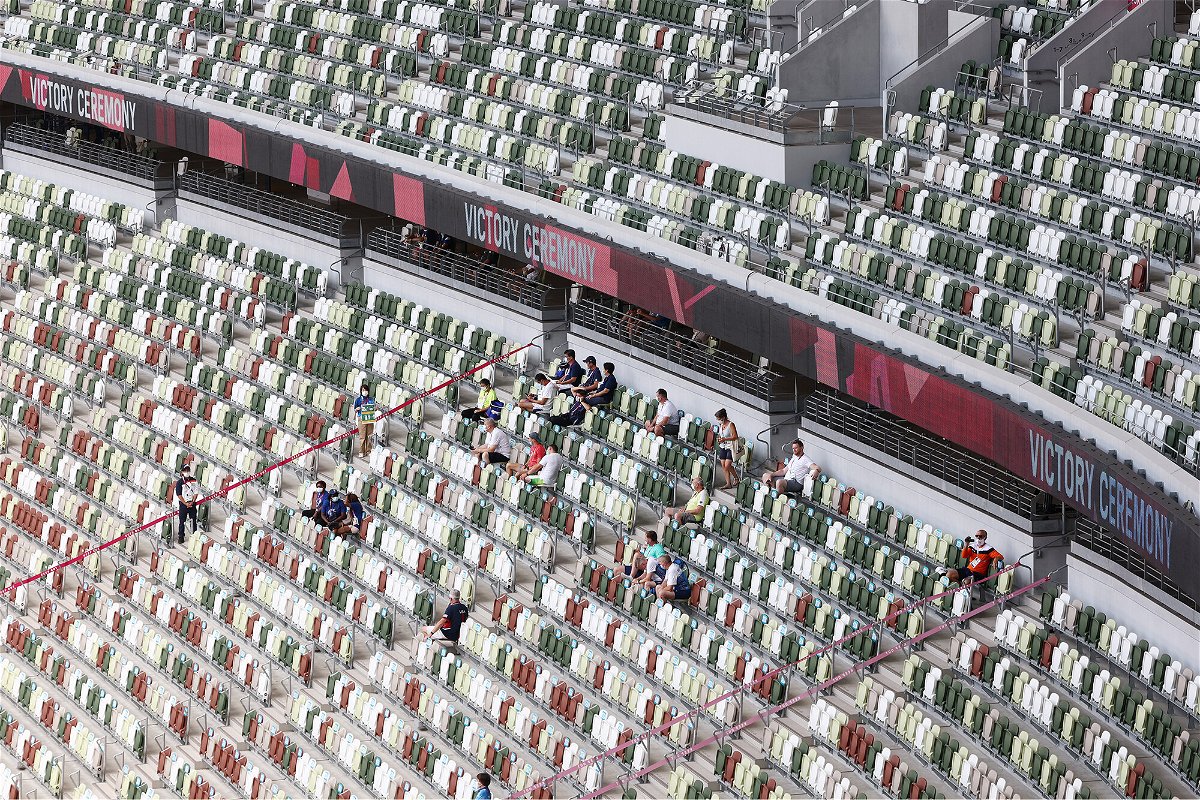NBC’s Summer Olympics ratings are in free-fall

NBC's TV audience for the summer Olympics is down a whopping 45% from the Rio games in 2016. This image shows Rows of empty seats in the Olympic Stadium on August 04
By Frank Pallotta, CNN Business
After pandemic-fueled delays last year, the Tokyo Olympics have gotten a lot of attention around this summer. Unfortunately for NBC, that attention has not translated to viewership.
NBC’s TV audience for the summer Olympics is down a whopping 45% from the Rio games in 2016. Viewership in prime-time is even worse, down 51%.
The good news for NBC is that its prime-time coverage on TV is still averaging roughly 13.5 million viewers, bringing in a bigger audience than most of its rivals’ broadcasts do right now. NBC’s total audience delivery — which compiles viewership across broadcast TV, cable and streaming — gives that prime-time number a little boost, averaging 16.8 million viewers, according to the network.
The other bright spot for NBC is that the Tokyo Games have found an audience via digital platforms and streaming.
The network boasted that Peacock, its streaming service, has notched strong viewership for the games. On Tuesday, NBC said that viewers had streamed 3 billion minutes of Olympics coverage across NBCOlympics.com, the NBC Sports app and its Peacock streaming services. Moreover, NBC said that number is “pacing to surpass Rio Olympics total in next few days.”
But why, in the traditional TV sense, are the ratings in free-fall? After all, this is the Olympics — historically one of the most-watched telecasts around the world. Its ability to bring together large swaths of viewers is one of the main reasons NBC is paying billions of dollars to televise the games over the next decade.
One major reason: The TV world is drastically different than it was five years ago. With the surge of social media and streaming, there’s more for audiences to watch than ever, and that leads to more media fragmentation.
The pandemic may have also played a part in the viewership drop. Before the games even started, organizers faced debate over whether they should be held at all. From a TV standpoint, it didn’t help that the global health crisis caused the games to go on without spectators — an element that makes watching sports more fun for viewers.
On top of that, finding competitions and games across different NBC platforms may have confused some viewers who were looking for a specific sport or athlete to watch, a complication further exacerbated by the 13-hour time difference between Tokyo and the US East Coast.
Whatever the reason, the TV numbers for the Olympics are down. And the games are running out of time to make up any lost ground for NBC and its advertisers.
The-CNN-Wire
™ & © 2021 Cable News Network, Inc., a WarnerMedia Company. All rights reserved.